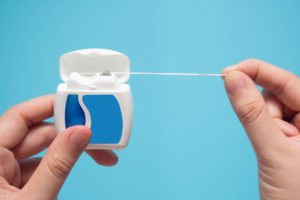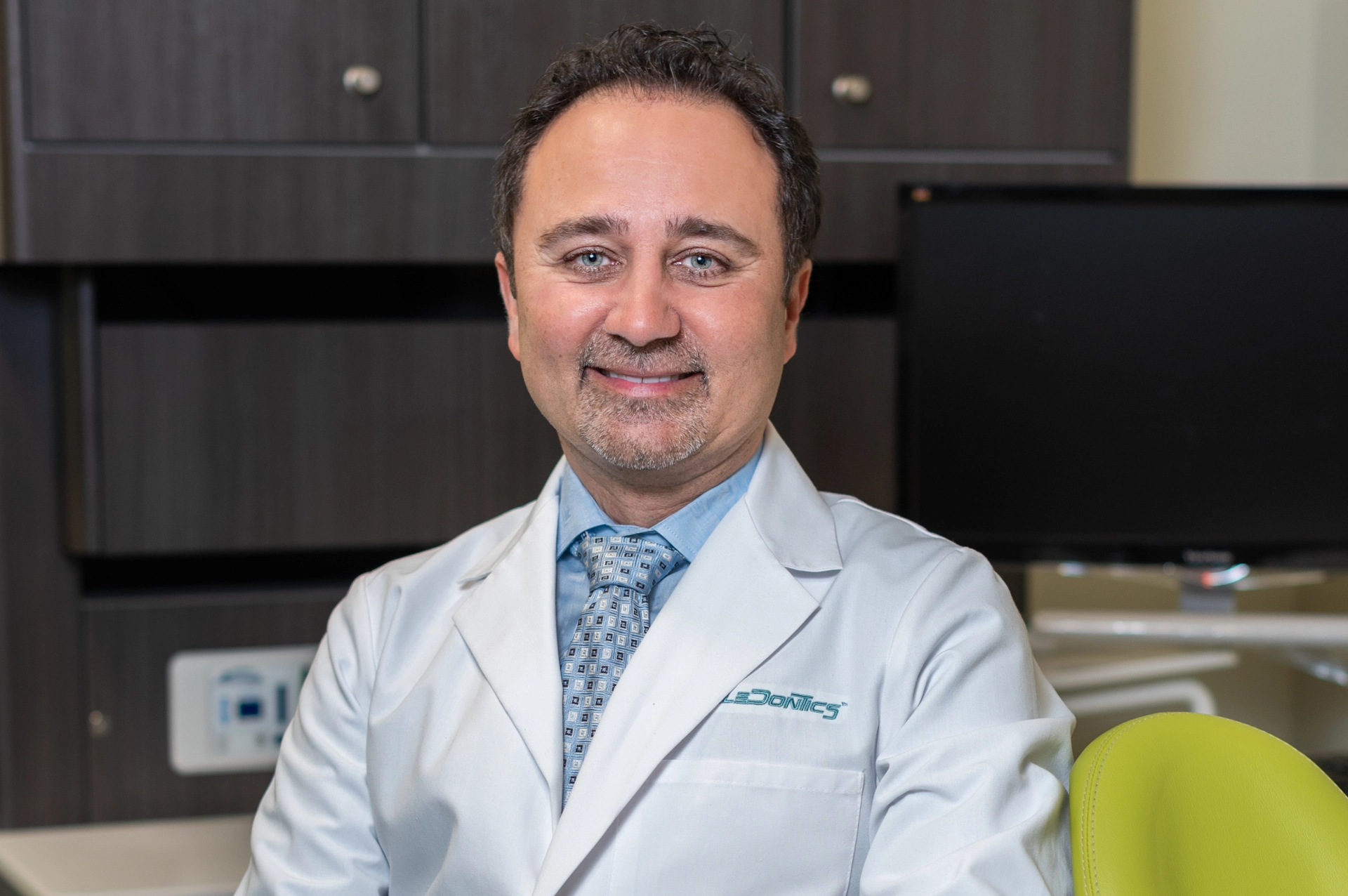
It’s not news that flossing is an essential part of your oral health routine. That you won’t get the maximum benefit if you don’t floss correctly may be a good reminder to up your flossing game.
What Does Flossing Do?
Floss is an essential step in your dental health routine because it’s able to get in between your teeth and up along the gum line where your toothbrush can’t reach as well. Because of this, flossing is better at removing plaque, bacteria, and food particles that get stuck between your teeth, the gunk that can build up and cause decay and gum disease.
When you don’t floss regularly, that gunk hardens into tartar, and only your dentist can remove it safely. Plus, developing tartar between your teeth and along the gum line makes it more likely that you’ll develop gum disease. So, what does flossing do? It helps preserve your oral health.
How Often Should You Floss?
Most people know that you should floss, but how often should you floss? Ideally, you should be flossing once a day, every single day. However, most people don’t do this and have a variety of reasons for avoiding regular flossing. According to a 2017 study, only 16% of survey respondents said they flossed at least once per day. Of the rest of the respondents, 20% said they only floss when they need to or when something is stuck in their teeth and 8% said they never floss.
So why aren’t people flossing their teeth? While 55% of survey respondents said they don’t floss daily because it takes too much time, another 16% said they don’t floss daily because it’s too painful, while 9% said they don’t floss because it’s gross. You know what’s really gross? Letting old bits of food and plaque build up between your teeth. Most people seem to know this, and that’s probably why 44% of survey respondents admitted to exaggerating how frequently they floss when asked by their dentist.
But there’s no need to lie about your flossing habits. Be honest with your dentist about how you care for your teeth so that they can give you the correct advice and care. You may even find that honesty leads to a better experience. In the end, your dentist may have some helpful advice about how and when to floss that could make you more likely to get in the habit of flossing daily.
How to Floss Properly
Flossing regularly is essential, but frequency is only part of it. To get the most out of flossing, it’s essential to know how to floss properly. First, and most importantly, only use tools specifically designed for this purpose like dental picks, string dental floss, interdental brushes, or water flossers. Using anything else is not only less effective but could damage your gum tissue or your teeth.
Second, there is some technique to learn when it comes to figuring out how to floss properly.
Flossing with string dental floss
- Use the correct amount of floss. You’ll need to start with enough floss, which may be more than you think. Use 18 to 24 inches to make sure you have enough for your entire mouth.
- Hold the floss correctly. Wrap the ends around your index or middle fingers so that you can maneuver it well between your teeth.
- Move the floss along the sides of your teeth. Slip the floss between your teeth and gently slide it along the sides of each tooth. Note: Sawing back and forth is not only unnecessary but can actually hurt your gums.
- Curve the floss into a C shape. Make a C shape with the floss as you slide it along your teeth. This allows you to scrape more surface area on your teeth and helps you get plaque out from under the gumline.
- Use a new section of floss for every tooth. Use a new section of floss for each tooth. This will prevent you from spreading bacteria, plaque, or food debris from tooth to tooth. Remember to floss behind your very back molars!
Using string dental floss is the most effective, but it may take a little trial and error to find the right type of floss for you. If you’re still struggling with using string floss effectively, try another tool, like a dental pick. If it makes you more likely to floss regularly, use it.
Should You Floss Before or After Brushing?
There’s also often some confusion about the right time to floss. Should you floss before or after brushing? Generally speaking, it’s ideal to floss first and then brush your teeth in order to effectively remove the most food, plaque, and bacteria from your mouth. However, that’s not a hard and fast rule for every dentist. The method that makes you more likely to floss is fine.
Get the Most From Your Oral Health Care
Ultimately, getting the most from flossing is about more than just how many times a day you should floss, flossing technique, or what you use to floss. Getting the most from flossing is all about finding a way to make it work for you so that you floss daily and floss well. If that means carrying floss with you everywhere you go and flossing on your lunch break, great! Follow it up with a good mouthwash to rinse out the gunk.
Flossing is an essential part of any oral health routine, but there’s more to maintaining your oral health than just flossing. Make sure you’re also brushing your teeth twice a day for two minutes each time with the right toothbrush and seeing your dentist regularly. Adults and kids should be seeing their dentist every six months for a cleaning and dental health checkup.
As dentists and dental health experts like Dr. Kami Hoss will tell you, your oral health is a key part of your overall health. Find out more about the connection between oral health and whole-body health by reading Dr. Hoss’s upcoming book, If Your Mouth Could Talk. Trust us: Keeping up with regular flossing can help keep you healthier both now and in the long run.
Sources:
https://www.health.harvard.edu/oral-health/is-flossing-really-necessary
https://www.mouthhealthy.org/en/az-topics/f/flossing
https://askthedentist.com/how-to-make-flossing-a-habit/
https://www.deltadental.com/grinmag/us/en/ddins/2019/spring/how-to-floss-regularly.html
https://www.healthline.com/health/how-to-floss#when-to-floss

